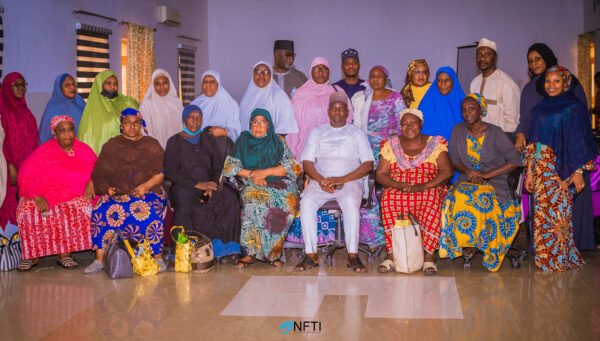The Natview Foundation for Technology Innovation (NFTI) recently held a one-day peer-review learning session with Officers-in-Charge (OICs) of primary healthcare facilities in the Kaduna North Local Government Area, Kaduna State. The purpose of the session was to discuss the longitudinal study on the availability of healthcare workers, absences from primary healthcare facilities, and tracer drugs and vaccines. The session aimed to promote peer learning, enhance understanding of the longitudinal study, and share key findings from NFTI’s research. The OICs validated and confirmed that the findings speak to the reality.

The event was graced by notable attendees, including Dr. Musa Dutse, Director of Planning, Research, and Statistics (DPRS) of the Kaduna State Primary Health Care Development Board (SPHCB), who delivered the goodwill message. Other key participants included Yahaya Mohammed, Health Secretary for Kaduna North; Glory Leah, Kaduna North Local Government Cold Chain Officer and Expanded Programme on Immunisation Desk Officer (IDO); and Bamayi Ishaya, Assistant IDO from the State Primary Health Care Board.
The session provided participants with an in-depth understanding of the longitudinal study’s objectives, scope, and methodologies, emphasizing its role in assessing key indicators in primary healthcare delivery. NFTI shared significant findings related to supply chain management, focusing on the availability of essential drugs and vaccines and human resource capacity. These findings shed light on the challenges of staffing and absenteeism in health facilities.
The event featured group discussions that provided a platform for participants to identify challenges, share best practices, and propose actionable solutions, insightful suggestions such as “Training on supply chain management should be made for both pharmacy technicians and officers in charge, timely requisitions, the need for DRF (Drug Revolution Funds), proper data documentation and utilization, proper monitoring of staff for daily recording, weekly facility validation engagement of ad-hoc staff, promotions or acknowledgment of volunteers that have demonstrated some level of value to the facility, software like OneBox should be more user-friendly, and implementing measures to reduce absenteeism among healthcare workers.
The session was crucial because it helped OICs understand the urgency of the study, its trends, what needs to be done, how to do it, and how the longitudinal study can serve as an advocacy tool for the state. By aligning their efforts with the findings, the participants are better equipped to address pressing challenges in staffing, supply chain management, and overall service delivery.



As NFTI continues to champion data-driven solutions for systemic transformation, this peer-review learning session exemplifies our dedication to turning insights into impactful action. With the support of stakeholders in the health sector, NFTI is paving the way for a future where primary healthcare facilities are exemplary models of efficiency and excellence.
Written By: Simnom Emmanuel

